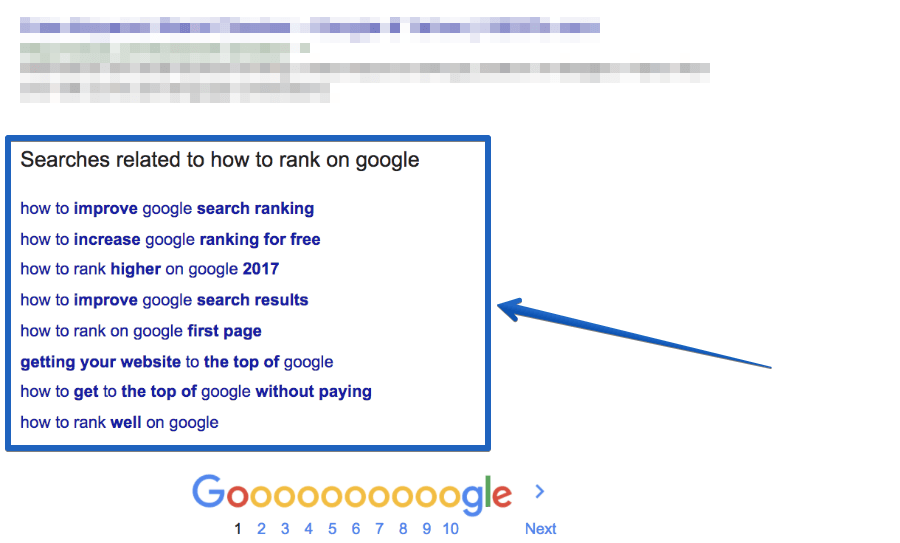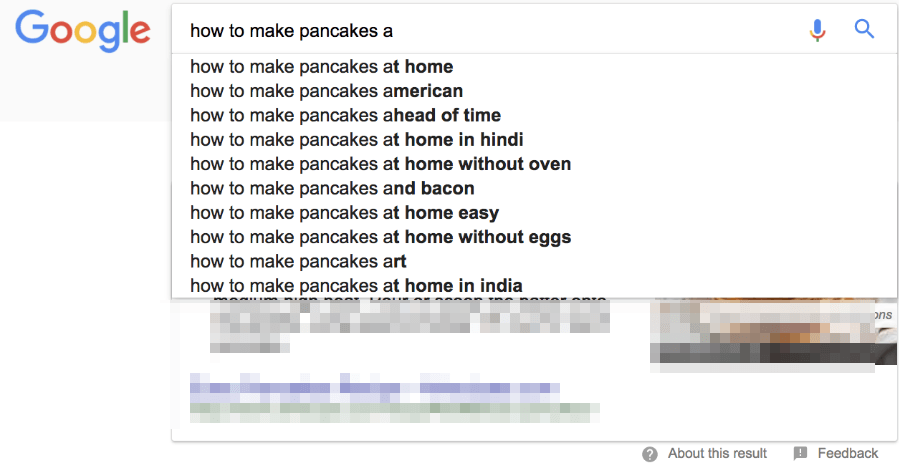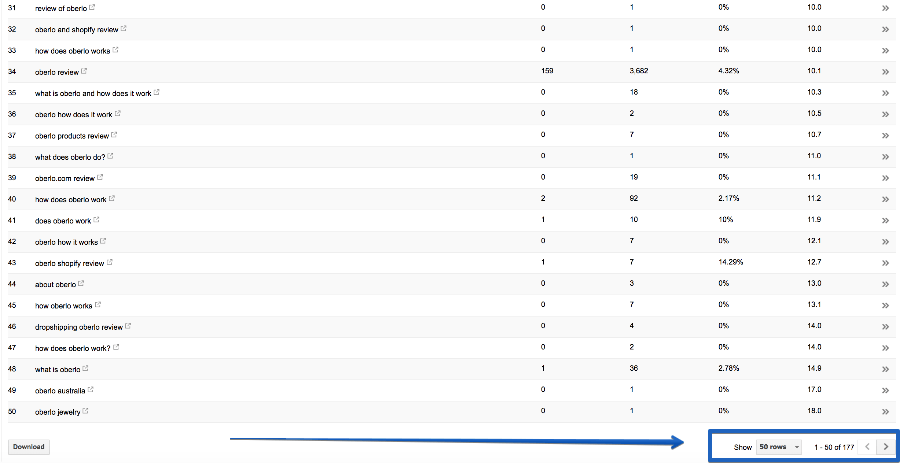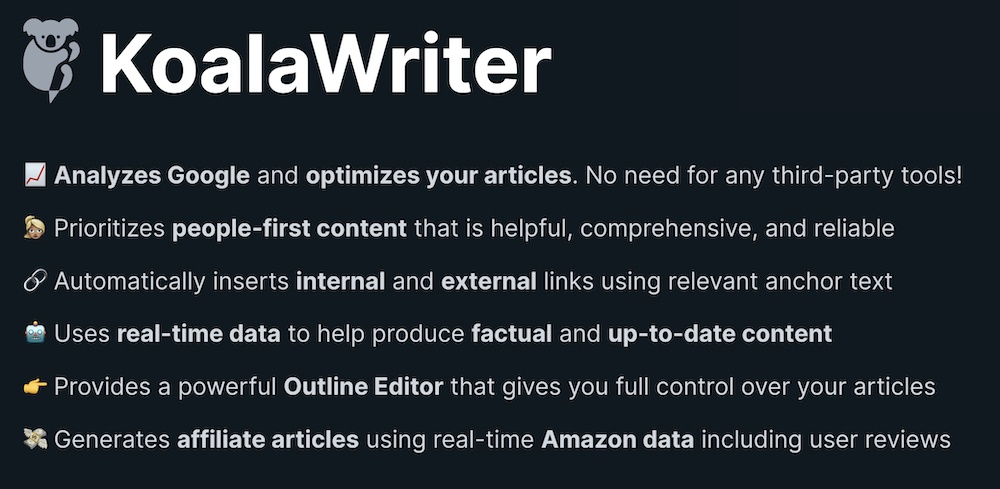The very first basic for anybody looking to understand SEO and how it functions is by understanding how keywords work.
If you have been lurking around SEO blogs before looking for information to get you started, or maybe even have some knowledge already, I am sure you’ve come across the concept of keyword research, which basically involves trying to guess (through metrics found with keyword tools) what people are looking for in your industry.
Ranking for a great keyword is great, but ranking for multiple great keywords is even better, the problem is this though:
Since the advice out there is that you need to target one keyword with each post (which is true), people do not yet realize how to get ranked for multiple keywords in Google.
This blog post is about that. I am going to show you, with proof from my own findings that one single post can get you ranked for hundreds of great keywords!
What’s so special about this post in question? As you will see below, nothing at all. It’s just a simple blog post written in a way where keywords are just picked up naturally by Google and it ranks for hundreds of them.
So, if you want to learn how to get ranked for multiple keywords in google and start getting more SEO traffic from your already existing blog posts, take a seat and let me explain to you this process that many are using, but few know or understand.
The Basics Of Keywords In SEO
As I said already, the general consensus out there is that you should target one keyword with one post.
While this is true, and you should keep doing this method, optimizing for just one keyword doesn’t necessarily mean you should (or will) get ranked for multiple keywords in Google.

How To Do Keyword Research (The Proper Way)?
This is a loaded question because there are many ways that you can find good keywords for your next post, too many to count and I can write a book about this so I won’t go into much detail here.
You can see this great guide on how to do keyword research for affiliate marketing here but before I continue to my SEO methods, I will explain one thing about keyword research.
Keyword research tools are all wrong!
I have been in the SEO space for about 5 years now, I used to do a little bit before that but that was “the old SEO” so that doesn’t really matter anymore.
However, what I have found just recently is that all keyword research tools are wrong.
Should you stop using them?
Actually no.
In fact, I still use keyword tools every day, I “like” them so much, I even pay for a premium one (Jaaxy).
However, they all lie and all their numbers are wrong. Even the highly esteemed Adwords tool by Google itself has no clue what people are searching and for which volume.
So, my point being with this is here;
Don’t let the fact that you may not afford a premium keyword research tool will hold you back.
The methods I am about to share with you will not make use of any “keyword tool” as we know it.
How To Find Great Keywords (Without Keyword Tools)
Suggested Searches:

This is a great feature by Google and although I am sure it was not designed to help SEO-ers get more traffic, it sure does the job very well.
Basically, whatever you type into Google, right down below you will get a list of suggested keywords that you can also rank for.
These ideas, provided by Google, are determined by what the person is really interested in.
For example; Let’s say you are looking for “how to cook”, that is a broad term and Google can’t possibly imagine what information you want as you have not specified what you actually want to cook.
The suggestions listed below are there to help make the user a more refined decision, thus the algorithm will be able to provide better search results.
Those are the keywords you want to rank for. Why? Because:
- They are proven keywords people look for (in general)
- You can get down to a specific keyword rather than a broad keyword
- (Generally) tend to not be as competitive as your main keyword.
The goal to get multiple keywords in Google is that you provide an all-around answer to people who are looking for a specific information.
Which mean, you can either use each of the suggested searches as their own keyword or you can write one incredible, long article that will see you ranking for many of these keywords.
Is it starting to make sense now?
You optimize for one keyword, but you are “sneakily” targeting more than one.
This is one way of getting multiple rankings with one post, but wait; there’s more.
Google Autosuggest:

Another great keyword tool that will give you many ideas and will help you rank for multiple keywords is the Google autosuggest feature.
Again, probably not designed for SEO purposes, but there’s a hidden treasure in these suggestions.
Let’ say you want to look for “how to cook” again, but that is way too broad and way too competitive,
How about adding an “A” or a “B” after your search and see what Google turns up (see image above for example).
Using this method, known to many as the “Alphabet soup technique” for some reason, you can find keywords that people are actually typing.
No second guessing here, it’s a sure thing that people are typing this otherwise it wouldn’t be in the autosuggestion.
After finding your keyword, you can also pass it through the first tip provided above and look at the below suggested suggestions.
Again using the main keyword as the one you optimize for but also including in your post related information that was suggested by Google will allow you to rank for multiple keywords.
I will tell you below how I got to rank for 200+ keywords, by optimizing for only one but before I do that, let me just share with you a tool that is quickly becoming my starting point for every post I write.
Answer The Public:

Ok ok so this is kind of a “keyword tool” but not quite.
What AnswerThePublic does is that it gives you questions people are asking about the topic you enter.
The problem with “normal” keyword research tools is that they do not pick up long tail keywords of 5 to 6 words, but that does not mean those 5-6 word keywords don’t get a lot of traffic.
They do, and you’d be surprised how under-served these keywords are since nobody is tailoring for such long-tail keywords anymore.
Want to see it in action and start getting long-tail keyword ideas? Visit AnswerThePublic.com and type in your industry, the tool will show you) in a great visual manner, what questions people have about that topic.
But how will this help you get ranked for multiple keywords in Google?
From my own experiences, I have found that whenever I target and optimize for long tail keywords, I also get picked up for shorter keywords as well.
Take the title of this post “How To Get Ranked For Multiple Keywords In Google”
If this article does deliver the value in answering that questions, I am expected to also rank with this post for keywords such as:
- “How to get ranked”
- “How to get ranked for keywords”
- “Ranking multiple keywords”
The gist off the article is all about getting multiple rankings, but it covers such a wide variety of keywords that it has to be picked up for another smaller ones.
Now I am not saying you will get ranked for multiple keywords on the first page even time, but it can happen and it also doesn’t help to be ranking for so many keywords (it’s a good metric for Google to measure the quality of your content).
My Results Trying To Rank For Multiple Keywords
One post I had a lot of success with ranking for multiple keywords is my Oberlo tool review.
That post, which was first optimized for simply the keyword “oberlo review” now ranks for 177 different keywords!

Traffic is through the roof for that post and as a side note; I make great monthly commissions from Oberlo / Shopify ranking for so many keywords that get me traffic.
As you can see above, there’s a lot of variations but “somehow”, I managed to rank for all of them with one single post.
That to me is equivalent to writing 172 different posts to get the same results but with just one post, I managed to hit the criteria to have rankings for nearly 200 keywords.
So what is so special about this article? Nothing much really, you can see it here.
However, it is an in-depth and detailed review that answers all the questions a person may have about using Oberlo.
It’s long, detailed and incredibly valuable content and that is what you should aim to achieve with every post you write.
How To Get MORE Rankings For A Keyword
Another trick to get more rankings for an already existing post is to see what keywords you are already ranking for, and optimizing the post around that keyword and updating it with fresh content.
Let’s say your post is “how to cook BBQ at home”
You may be also ranking for “cooking beef BBQ at home” and you have no mention of “beef” in your article.
That may happen, so don’t be surprised but a smart way to go about this is to add another paragraph or so with a small guide on “how to cook beef”.
Since you already know Google is picking you up for that keywords, might as well help the algorithm a bit by adding content that is relevant to that keyword.
I also did this to my Oberlo review post, and the results were I received 32% more traffic in less than a week on that post.

That’s good news for me and good news for anybody that is struggling to wrap their head around keywords.
As you can see from this guide, it doesn’t really require too much time using keyword tools as opposed to just writing a great piece of content that answers the questions people are looking for.
Actually, it doesn’t get simpler than that!
Want Some SEO Training?
SEO is a vast topic and there are over 200+ metrics that go into determining your rank.
So while this may help you get ranked for multiple keywords in Google, it’s surely not enough to build a long-sustainable SEO strategy.
If you want some great training regarding SEO and getting ranked for keywords that actually make you money, then take my free “Getting Started” course here.
Closing Words
Thank you very much for reading. I hope this post has delivered enough practical information for you to go out there and get yourself some kick-ass rankings for great keywords.
Let me know if I can help in any way.

